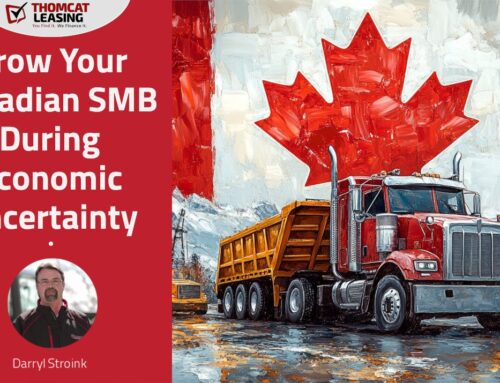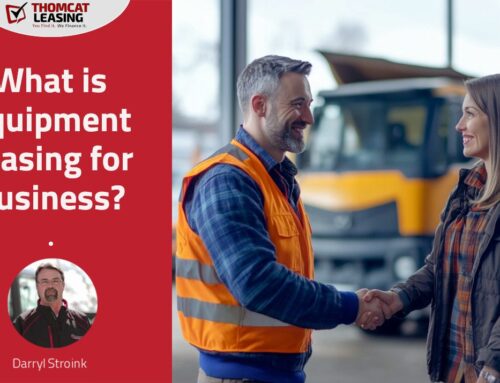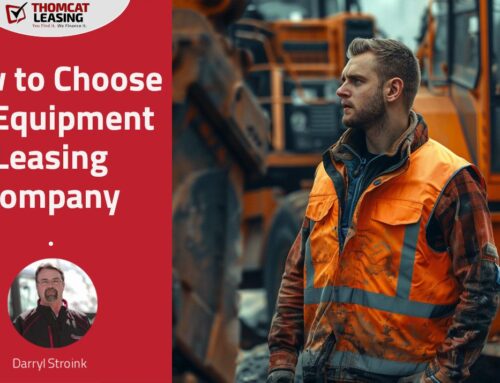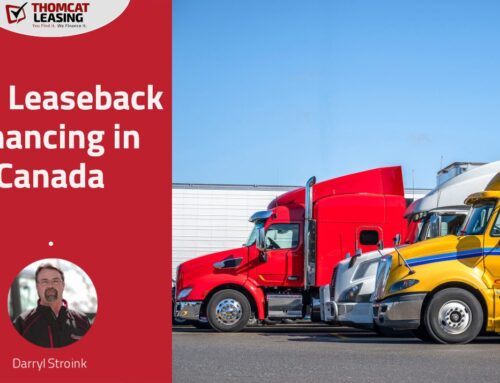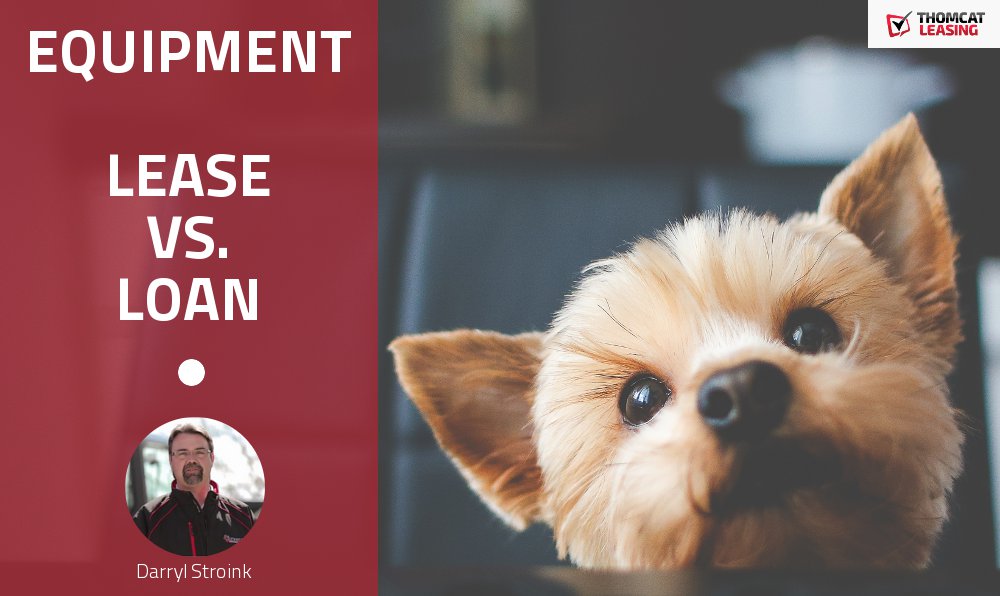
Picking the Best Financing Model for Your Equipment Purchases
It’s pretty rare these days that a business has the free-standing cash to purchase all the equipment it needs. Prices of equipment continue to soar. Besides, it’s not always advantageous for you to tie up all your business cash into equipment.
Most people are turning to financing to get their equipment. It makes perfect sense! You’ll be earning revenue off of the equipment while you pay it off. Not too mention breaking a large sum into smaller manageable payments.
Should you get an equipment lease or an equipment loan? Do you turn to a lease broker? Or do you talk to your bank for a loan?
You might not think there is much of a difference between a lease or a loan. In some regards, you’d be right. Both get you the financing you need. In other ways, the details can really matter.
Let’s take a look at equipment leases vs. equipment loans, and explore what those differences mean.
Lease vs. Loan
| Lease | Loan | |
|---|---|---|
| Payment Terms | Flexible. Monthly, semi-monthly, bi-monthly, annual, quarterly, and seasonal. You can usually arrange to skip payments as well. This helps you match payments to your cash-flow. | Standardized. Monthly payments are the most common form of loan repayment. However, you can sometimes arrange alternative regular interval payments. |
| Equipment Ownership | The lessor owns the equipment. You can decide to take ownership for $10 or 10%. There are a number of different end of term options. | You own the equipment and take all ownership responsibilities. |
| Down Payments | Usually you don’t need a down payment. | Usually you will need a down payment of 5-20%. |
| Collateral Requirements | The leased equipment is the collateral. Usually you don’t need anything else to serve as collateral. | Depending on your credit, you may be required to pledge additional assets as collateral. |
| Maintenance | You will usually be responsible for equipment maintenance costs. | All maintenance and repair costs are your responsibility. |
| Payment Amount |
Be careful comparing simply the payment amount because payments are easily manipulated by the other terms (down payment for example). Usually you can get a payment that suits you. |
|
| Tax Benefits | Your entire lease payments are deductible as a business tax expense. | Only the interest portion of your payments are deductible as a business expense. However, you also can claim the yearly CCA (capital cost allowance) portion (rates set by CRA). |
| GST/HST Input Tax Credit (ITC) & PST | The GST/HST of the equipment purchase is spread out over the entire lease term. Therefore, you will be able to claim a small ITC from every payment.
If you trade equipment prior to the end of lease, you save from having not paid all the PST. |
The GST/HST of the equipment is all paid up front. Therefore, you can claim one large ITC at the time of purchase.
Sometimes, the GST/HST is rolled into the loan amount. In those situations you might not get any ITC. All PST is due up front and could make for a higher financed amount. |
| Line of Credit Effect | Usually your debt load and line of credit limits are unaffected. That’s because you didn’t actually borrow any money. | The amount you borrow will be registered on your credit reports showing your debt load. This does not impact your credit score negatively, but it does reduce your line of credit limit. |
| Obsolete Equipment Protection | You are not obligated to own the equipment at the end of the lease and can trade up at anytime. This makes it very easy to “trade-up” to more modern equipment whenever you need to. | You own the equipment. This means you’ll be responsible for reselling the equipment, regardless of whether it is valuable or obsolete. |
| Approval Length | Leases are actually quite simple and self-contained. This allows approvals to come through in literally minutes. It can, however, take a little bit longer on higher value and riskier credit leases. | Banks are not built for speed and they like to dig deep into your financial statements before lending money. While it is possible to get approved quickly, usually it takes weeks. High debt or poor credit rating will make securing a loan very difficult. |
Please consult your accountant to understand your entire tax & financial benefits and responsibilities.
Should You Lease or Loan Your Equipment?
What is your verdict? Is it more beneficial for your company to lease equipment, or seek a bank loan?
Both leases and loans serve a purpose. It often comes down to whichever format gives you the most benefits.
If you are interested in pursuing the equipment leasing direction, Thomcat Leasing works with Canada’s top lenders to get you the lowest payments available. Our personal service and deep industry knowledge guarantees that you’ll get the right lease for you.
Get a quick lease estimate right now and see how affordable leasing is for you!
Equipment Leasing Guide
Want to know how to make leasing work for you? Get straight down to business with our equipment leasing guide where we’ll give you advice for every stage of the process.


